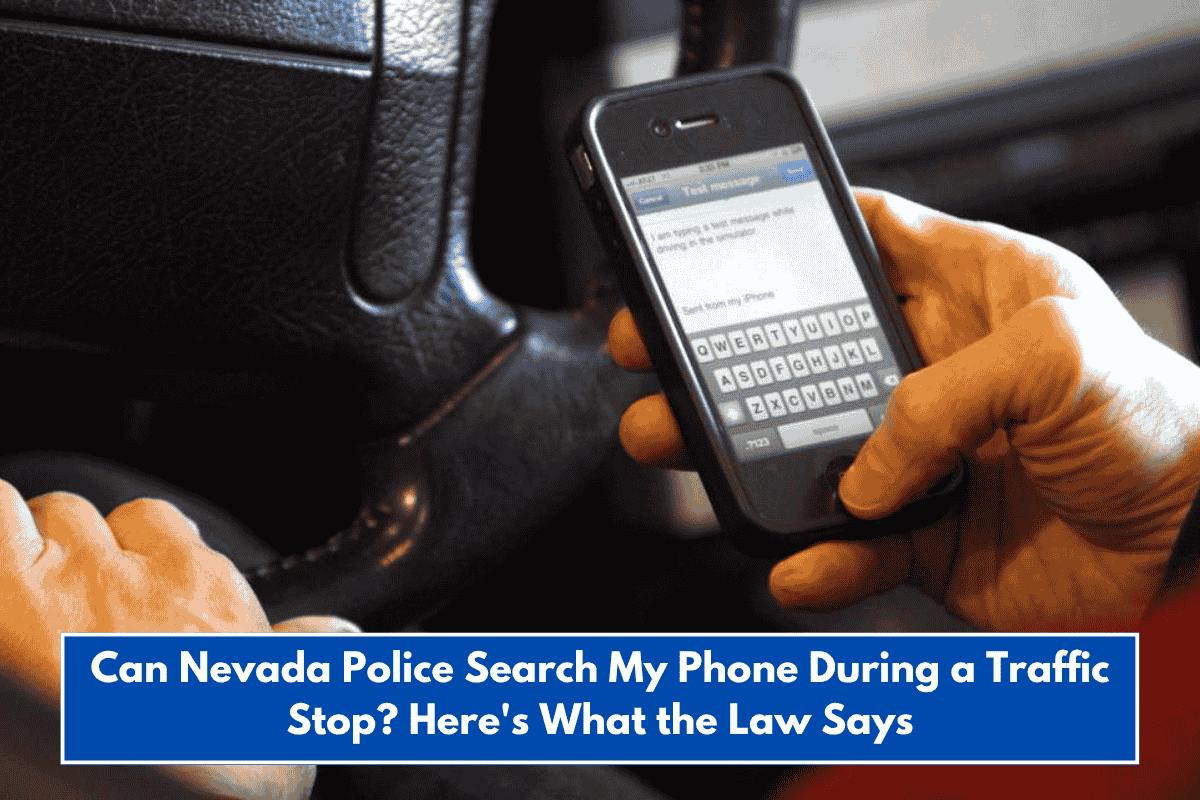Traffic stops can be stressful, and you may wonder about your rights when it comes to police searching your phone. In Nevada, like in many other states, the law provides specific guidelines about when and how police can search your phone during a traffic stop. Here’s everything you need to know about your rights and the law.
The Fourth Amendment and Your Rights
The Fourth Amendment of the U.S. Constitution protects citizens from unreasonable searches and seizures, which means that police need a valid reason or a warrant to search your property, including your phone.
However, there are certain exceptions where a phone can be searched without a warrant, especially during a traffic stop. Understanding these exceptions is crucial to knowing when police can legally access your phone.
When Can Nevada Police Search Your Phone Without a Warrant?
- Consent: The most common way police can search your phone during a traffic stop is if you give them consent. If you are asked by an officer to unlock your phone or hand it over, and you agree, the search is legally allowed. However, you have the right to refuse this request. If you deny consent, they cannot search your phone without further legal justification.
- Search Incident to Arrest: If you are arrested during a traffic stop, police may be able to search your phone without a warrant as part of a “search incident to arrest.” This is an exception to the warrant requirement, allowing officers to search items that are on your person at the time of arrest, including your phone. However, this search must be directly related to the arrest, and there must be a reasonable connection to the crime you are being arrested for.
- Probable Cause and Exigent Circumstances: In some cases, if police have probable cause to believe that your phone contains evidence of a crime, and there is an emergency situation (called “exigent circumstances”), they may search your phone without a warrant. For example, if they believe you are using your phone to communicate with someone involved in illegal activity or to destroy evidence, they may be able to search it on the spot.
The Role of Warrants in Phone Searches
In general, to conduct a search of your phone’s contents (such as text messages, photos, or apps), police typically need a warrant. The U.S. Supreme Court ruled in Riley v. California (2014) that police cannot search the digital contents of a phone without a warrant, even if the phone is seized during an arrest. This decision protects your right to privacy and the contents of your personal device.
What If Police Search Your Phone Without Consent or a Warrant?
If police search your phone without your consent or a valid reason (such as a warrant, exigent circumstances, or as part of an arrest), the search may be considered a violation of your Fourth Amendment rights. Evidence found during an illegal search may be excluded from court under the “exclusionary rule.”
Can I Refuse to Unlock My Phone for Police?
Yes, you have the right to refuse to unlock your phone for police officers. While police cannot force you to unlock your phone with your passcode or fingerprint, this may lead to some consequences. If you refuse, they might seize your phone or use other investigative techniques to obtain information. However, refusal to unlock your phone does not give them the right to search the contents of your phone without a warrant or a valid exception.
In Nevada, police cannot search your phone during a traffic stop without either your consent, a warrant, or a valid reason such as an arrest or exigent circumstances. It’s important to be aware of your rights and assert them when necessary. If police ask to search your phone, you have the right to say no unless they have a valid legal reason to conduct the search.
SOURCE
[1] https://joeygilbertlaw.com/blog/your-rights-during-police-searches-in-nevada/
[2] https://www.shouselaw.com/nv/blog/warrant/when-are-nevada-police-allowed-to-search-my-cell-phone-do-i-have-to-give-my-passsword/
[3] https://www.bensonbingham.com/nevada-supreme-court-decides-on-case-regarding-police-search-during-traffic-stops/
[4] https://law.justia.com/cases/nevada/supreme-court/2024/86156.html
[5] https://nvcourts.gov/__data/assets/pdf_file/0024/47247/Smith_v._State,_545_P.3d_716_Nev._2024.pdf














